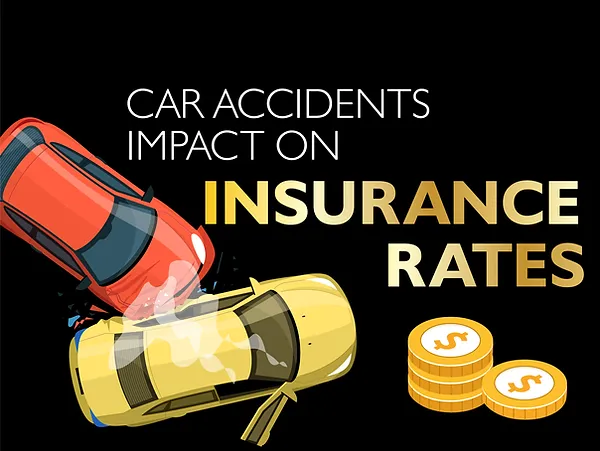The short answer is in accordance to Florida Statutes §626.9541 they legally can not do so unless you were the at-fault party, or that some form of fault was established. The statute states that your car insurance rates should not increase following an accident unless you were deemed “substantially at fault.” It also says that insurance companies are prohibited from raising premiums for liability, personal injury protection, medical payments, or collision coverage “merely because the insured was involved in a car accident, unless…the insurer determines in good faith that the insured was substantially at fault.”
If your insurance company does raise your rates, you may want to keep reading to determine if there is some other reason why they did so. If you read through and still believe that they have wrongly raised your rates, you may need to contact a personal injury attorney like those at Demesmin and Dover Law Firm to help.
Understanding car insurance
Before going into the specifics of how car accidents can impact insurance rates, it is important to understand how car insurance works. Essentially, your insurance company and you sign a contract that states you will pay a premium in exchange for coverage in the event of an accident.
There are several types of coverage:
Liability insurance: This covers any damages or injuries that you may cause to others in an accident.
Collision insurance: This covers damages to your vehicle in the event of a collision, regardless of who is at fault.
Comprehensive insurance: This covers damages to your vehicle that are not caused by a collision, such as theft or weather-related damage.
Insurance companies use a variety of factors to determine your insurance rates, including your driving history, age, gender, location, and the type of vehicle you drive. Your insurance rates may also be affected by factors such as your credit score, marital status, and occupation.
Factors That Determine Insurance Rates After a Car Accident
When it comes to car accidents, several factors can impact your insurance rates. Some of the key factors include:
Fault: If you are found to be at fault for an accident, your insurance rates are likely to increase. This is because insurance companies view drivers who cause accidents as a higher risk.
Severity of the accident: The severity of the accident can also impact your insurance rates. If the accident resulted in significant damage or injuries, your insurance rates may increase more than if it was a minor fender bender.
Your driving history: Your insurance rates may also be impacted by your driving history. If you have a history of accidents or traffic violations, your rates may be higher.
Your insurance coverage: The type and amount of insurance coverage you have can also impact your rates. If you have a higher level of coverage, your rates may be higher.
Your insurance company: Each insurance company has its own policies and procedures for determining insurance rates after an accident. Some companies may be more forgiving than others, depending on the circumstances of the accident.
If you are involved in a car accident, your insurance rates may increase or decrease, depending on the specific circumstances. Here are a few scenarios to consider:
You are not at fault: If you are involved in an accident that is not your fault, your insurance rates should not be impacted.
You are at fault: If you are found to be at fault for an accident, your insurance rates are likely to increase. The severity of the accident and your driving history may also impact the amount of the increase.
Minor accident: If the accident was a minor fender bender and there was little or no damage, your insurance rates may not be impacted at all.
Major accident: If the accident was more severe and resulted in significant damage or injuries, your insurance rates are likely to increase. The amount of the increase will depend on the specific circumstances of the accident.
Repeat accidents: If you have a history of multiple accidents, your insurance rates are likely to be higher. Insurance companies view drivers with a history of accidents as a higher risk and may charge higher rates accordingly.
Claims history: If you have a history of making claims on your insurance, your rates may be higher. Insurance companies may view you as a higher risk if you have a history of making claims.
Insurance company policies: Each insurance company has its own policies and procedures for determining rates after an accident. Some companies may offer accident forgiveness programs, which means your rates will not increase after your first accident. Other companies may be less forgiving and may increase your rates after any accident.
If you are involved in a car accident, there are several steps you should take to protect yourself and minimize the impact on your insurance rates:
Contact your insurance company: Report the accident to your insurance company as soon as possible. Your insurance company will help you navigate the claims process and determine the impact on your rates.
Gather information: Collect information from the other driver, including their name, contact information, and insurance information. Take photos of the damage and any injuries, and get contact information from any witnesses.
Follow up with your insurance company: Keep in touch with your insurance company throughout the claims process. Be honest and transparent about the circumstances of the accident.
Consider hiring a personal injury lawyer: If you were injured in the accident or if there is significant damage, you may want to hire a personal injury lawyer. The accident lawyers at Demesmin and Dover Law Firm can help you navigate the legal and insurance issues you are dealing with. They want to ensure you gain the compensation you deserve.


